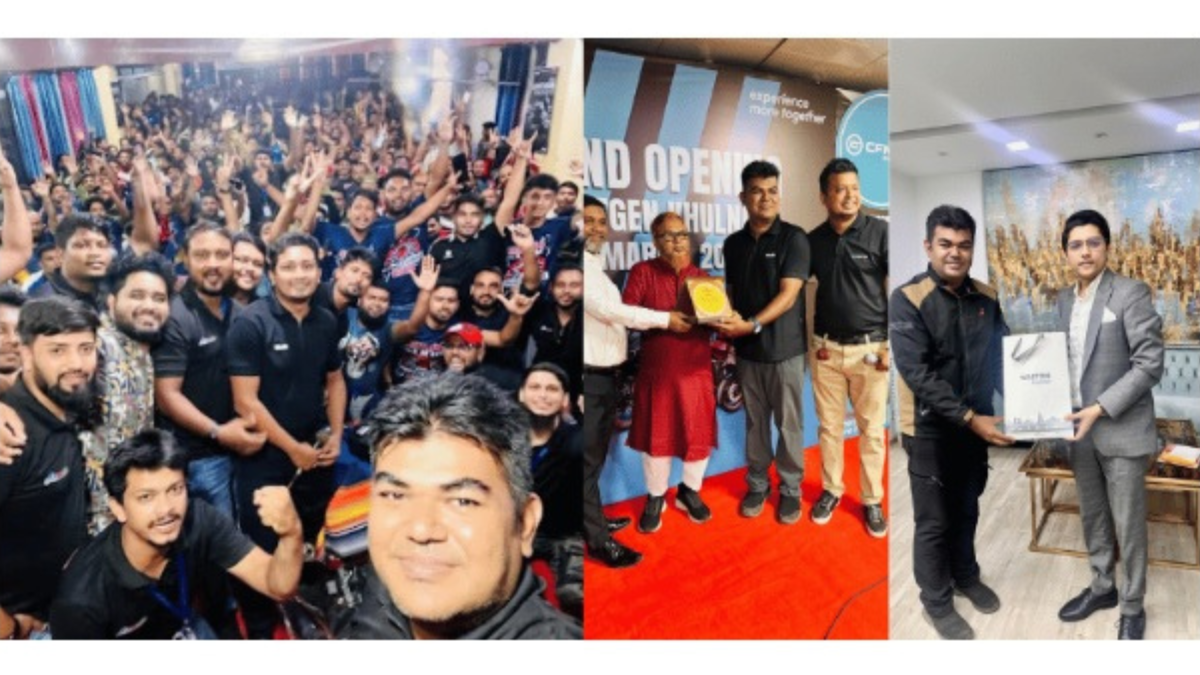
Shawkat Ali Sarker, Bir Bikram. COURTESY
The historic March 7 speech of Bangabandhu instantly encouraged me to take part in the War of Liberation in 1971, recalled Shawkat Ali Sarker, a gallantry award winning freedom fighter, while reminiscing the war memories. “The historic March 7 speech of Bangabandhu immediately united the Bangalees irrespective of caste, creed and religion to prepare for the ultimate War for Independence,” Shawkat, Bir Bikram, told BSS. The valiant freedom fighter is currently President of Chilmari upazila Awami League and Chairman of Chilmari upazila parishad in Kurigram district. He said the Bangalee nation under the leadership of Father of the Nation Bangabandhu Sheikh Mujibur Rahman was forging the decisive rock-solid unity for the independence to get rid of injustice, deprivation, exploitation and torture in 1971.
The then young man Shawkat passed B. Com. examinations in 1969 when the Bangalees were in the unprecedented noncooperation movement against the Pakistani regime. Shawkat, second among nine kids of late Ezab Uddin Sarker and late Shoritan Nesa, of village Dakshin Wari (Haservita) in Chilmari upazila in Kurigram, then was finding a job. Shawkat, now 73, said the Pakistani army cracked down on innocent people at night on March 25 in 1971 to eliminate Bangalees through genocide, arson, rape, torture and abuse as per their heinous plans.
“Being inspired by the directions for the War of Independence given by Bangabandhu in his March 7 speech, I left home to protect the honour of our motherland in the beginning of the War of Liberation,” he said. He joined the War of Liberation in Roumari area separated by the river Brahmaputra from mainland. Shawkat said, “One platoon Bangalee soldiers of the 3rd Bengal Regiment in Saidpur cantonment, with heavy rocket launchers and light machine guns came to Roumari by river route via Palashbari of Gaibandha.”
Freedom fighters Sadakat Hossain Chhakku Mian and Nurul Islam Pappu started conducting training of youths at occupation-free Roumari under leadership of Subedar Altaf Hossain. After completing training at Roumari, youths from Gaibandha, Tangail and Sirajganj started participating in various operations as heroic freedom fighters across the country.
Roumari remained under Sector No. 6 during the War of Liberation as a stronghold for training of freedom fighters. Knowing about Roumari safe zone for freedom fighters, the Pakistan army came to Chilmari by train on the other side of the Brahmaputra and built a strong base there. Shawkat participated in dozens of warfare, including the Kodalkati, Chilmari, Kamarjani, Tarabar Ghat and Hatia frontal battles and many guerrilla operations in 1971.
“We planned to attack the Pakistani army base at Chilmari on August 1 and put stiff resistance to break up their strong base. But, we had to retreat to Telipara Char,” he said. “Later, Pakistani army started coming by gunboats to Telipara Char from Bahadurabad Ghat, trying to surround us from two sides. But, they could not survive to our strength,” Shawkat said.
Two days later, Pakistani army crossed the Brahmaputra with the help of their collaborators at Mohanganj and stayed at Bhelabari School camp in Kodalkati area of Rajibpur Thana. “We took position in a drain next to the Pakistani army camp under the leadership of Subedar Altaf when firing started between the two sides at night and continued for a week,” Shawkat remembered.
It was widely known as the ‘Kodalkati Battle’ when the Pakistani army was forced to retreat after intense firing from freedom fighters and suffering heavy casualties. “Later, one beggar told us that the Pakistani army carried 200 to 250 bodies during the week-long battle,” he said, adding that 21 freedom fighters were martyred in the war.
After the successful guerrilla operation, we attacked Sundarganj Thana in Gaibandha and captured huge weapons. Shawkat said the ‘Hatia Battle’ was a very significant warfare during the War of Liberation. “The battle began at dawn on November 13 in 1971. I led the attacks on Pakistani army with a 25-member group of freedom fighters. The occupation forces launched counter-attacks,” he said.
A number of freedom fighters were martyred in that battle where Shawkat was shot at his leg when the Pakistani army with local collaborators killed 697 innocent Bangalees at Hatia union of nearby Ulipur Thana. “After getting initial treatments at Roumari, I went to Teldhala Medical Centre in India for advanced treatment and returned just before the country became independent,” Shawkat said.












0 Comments